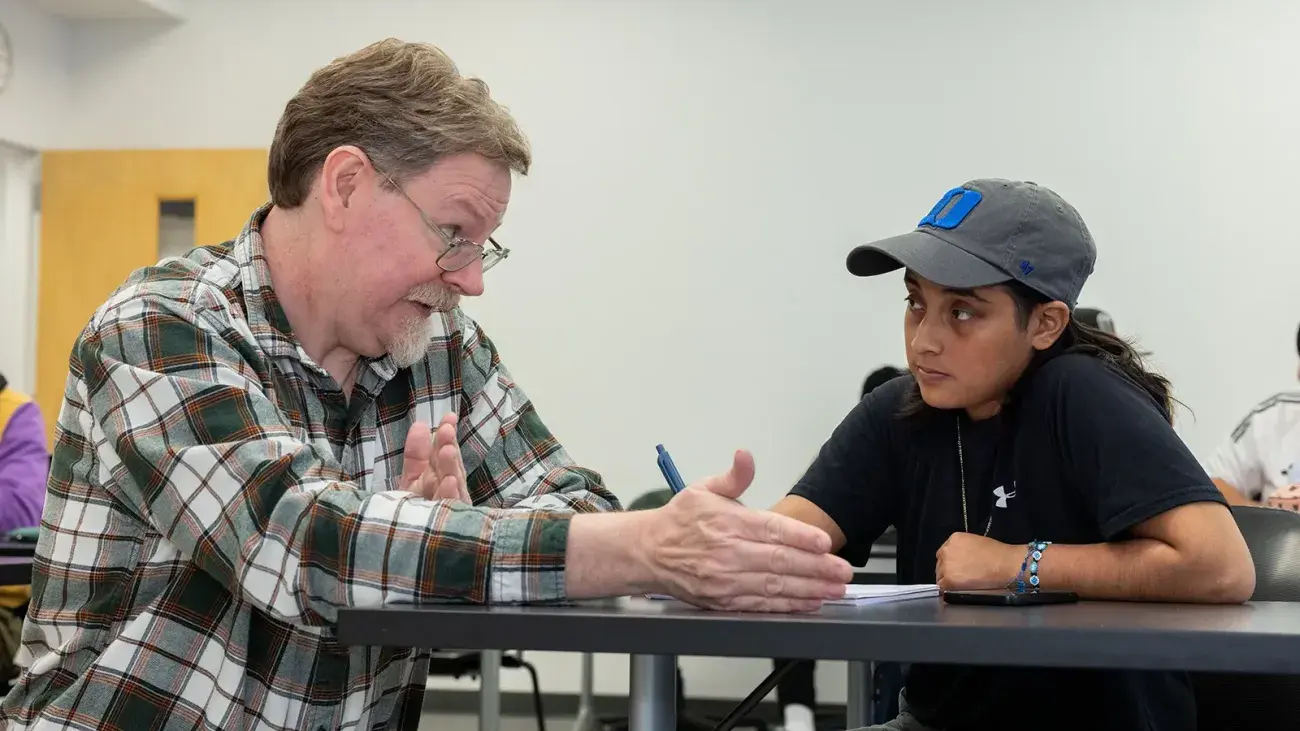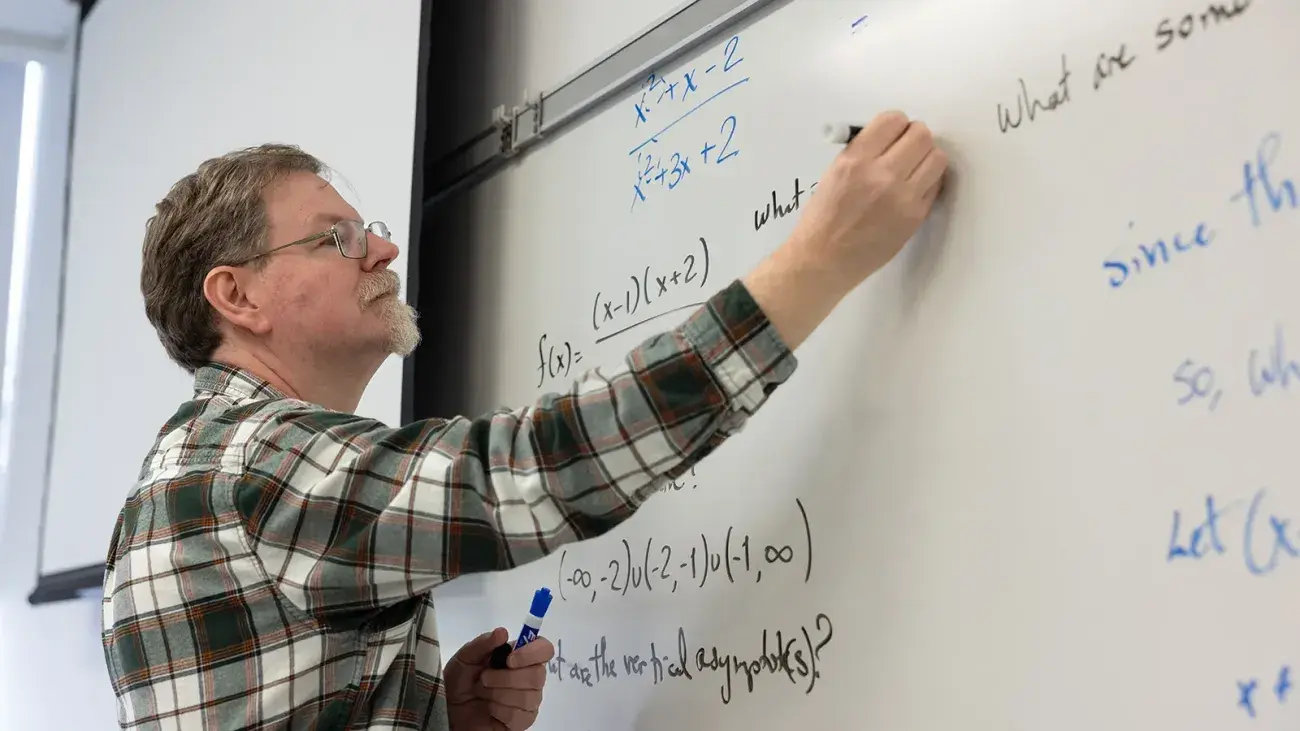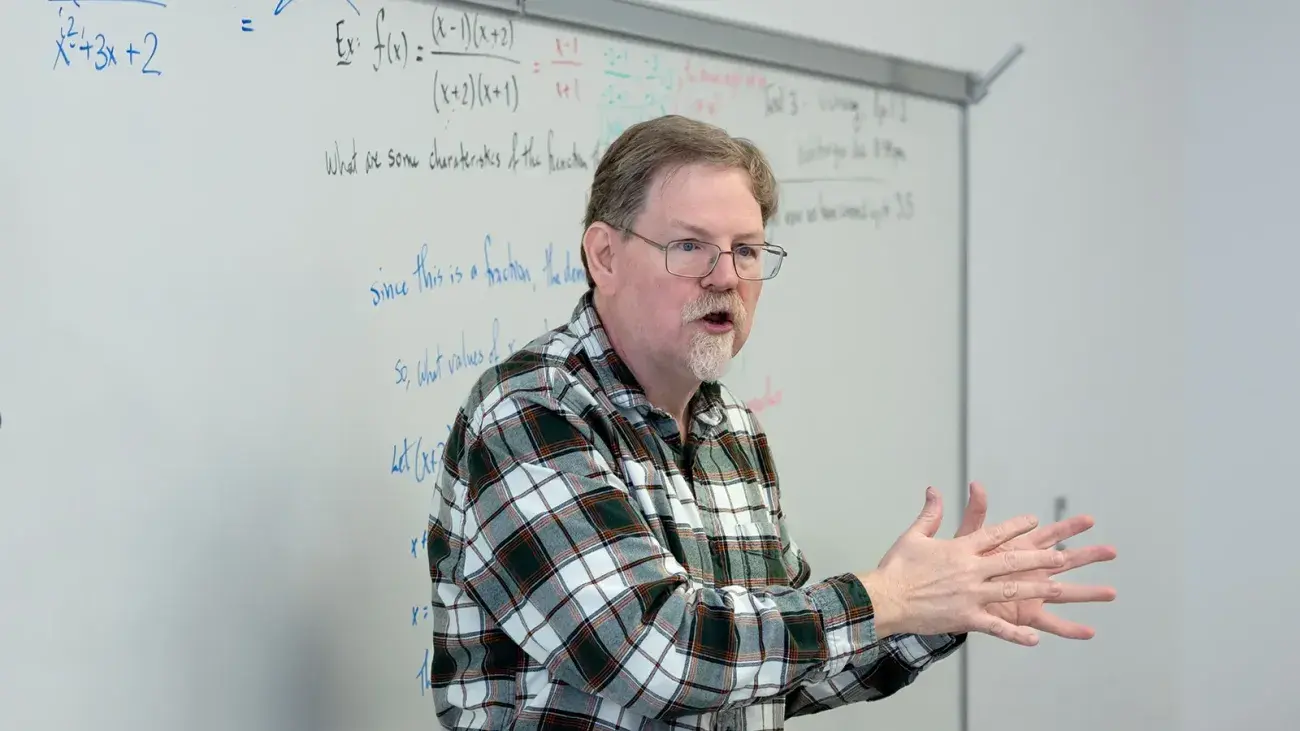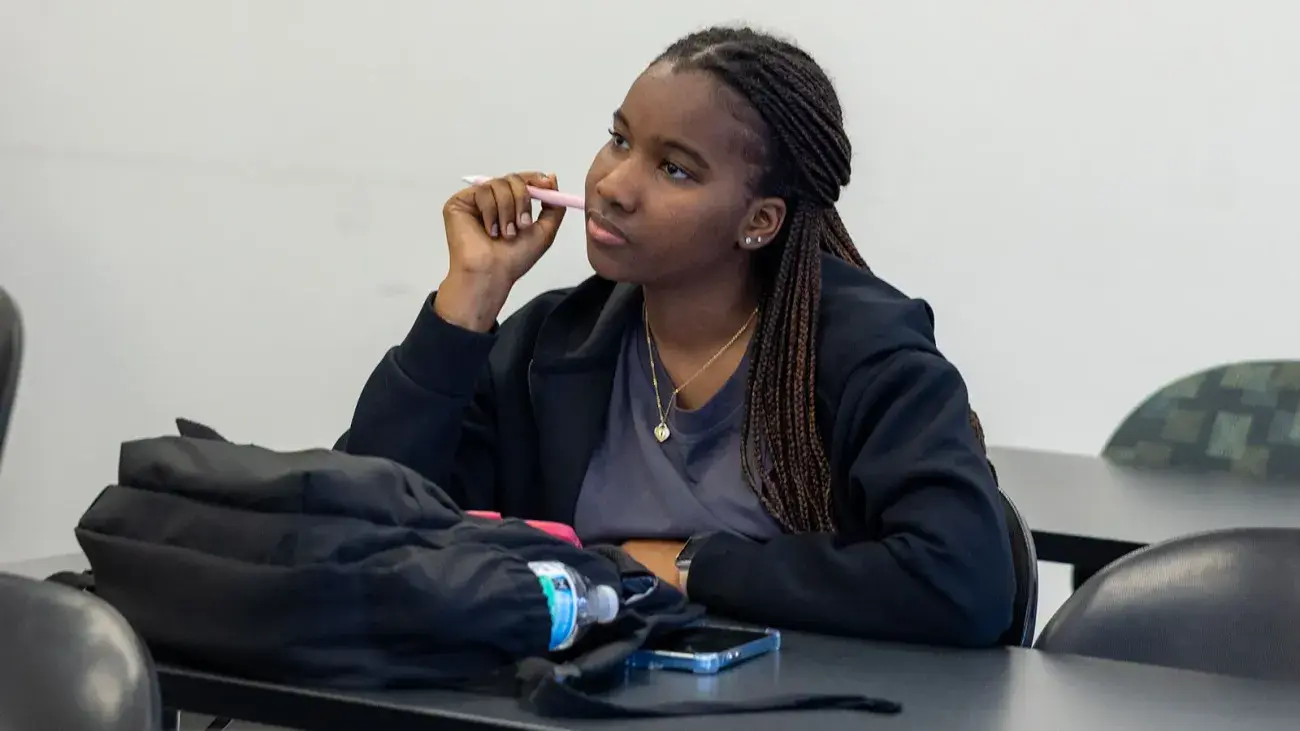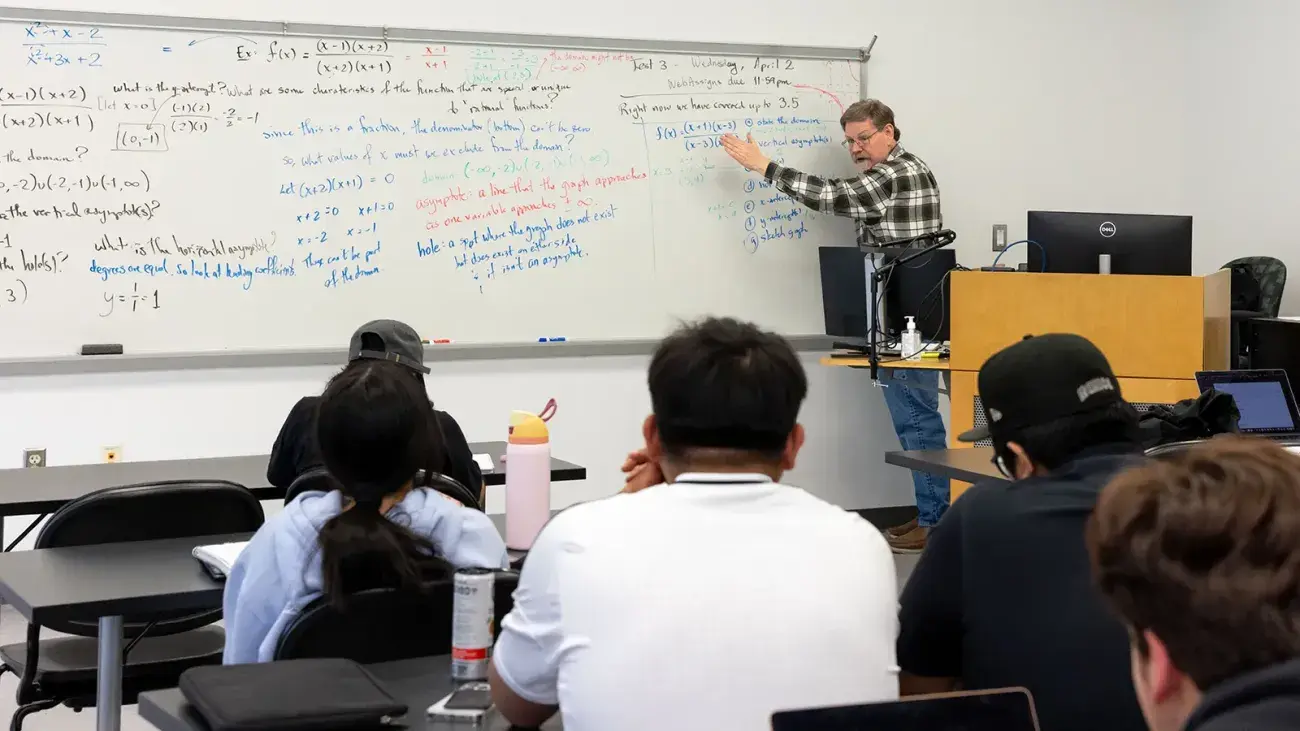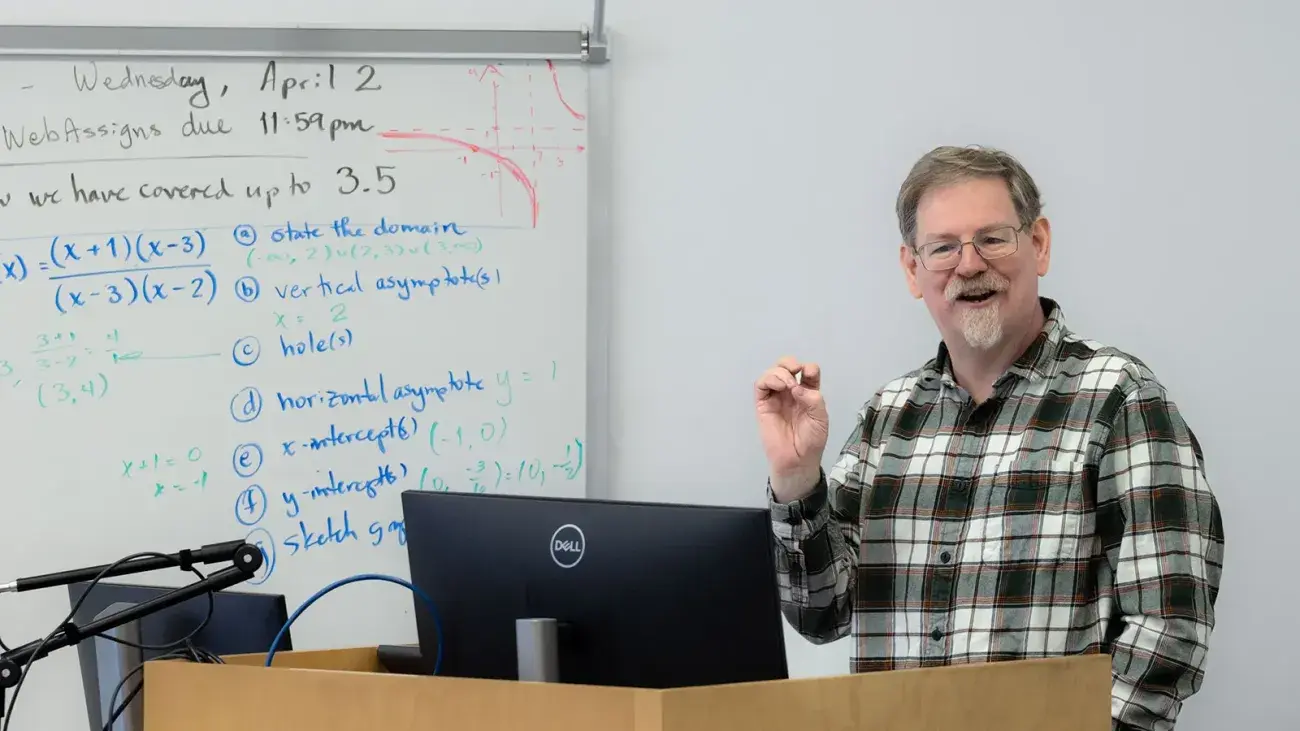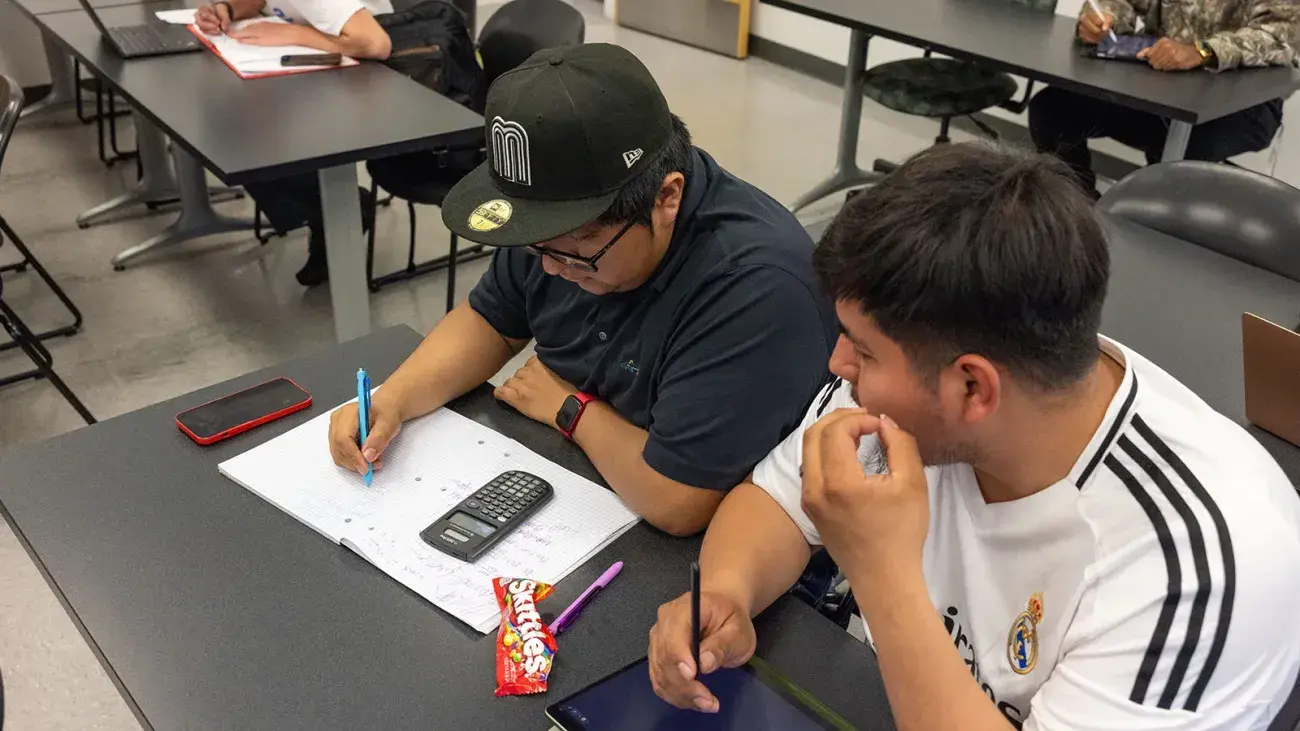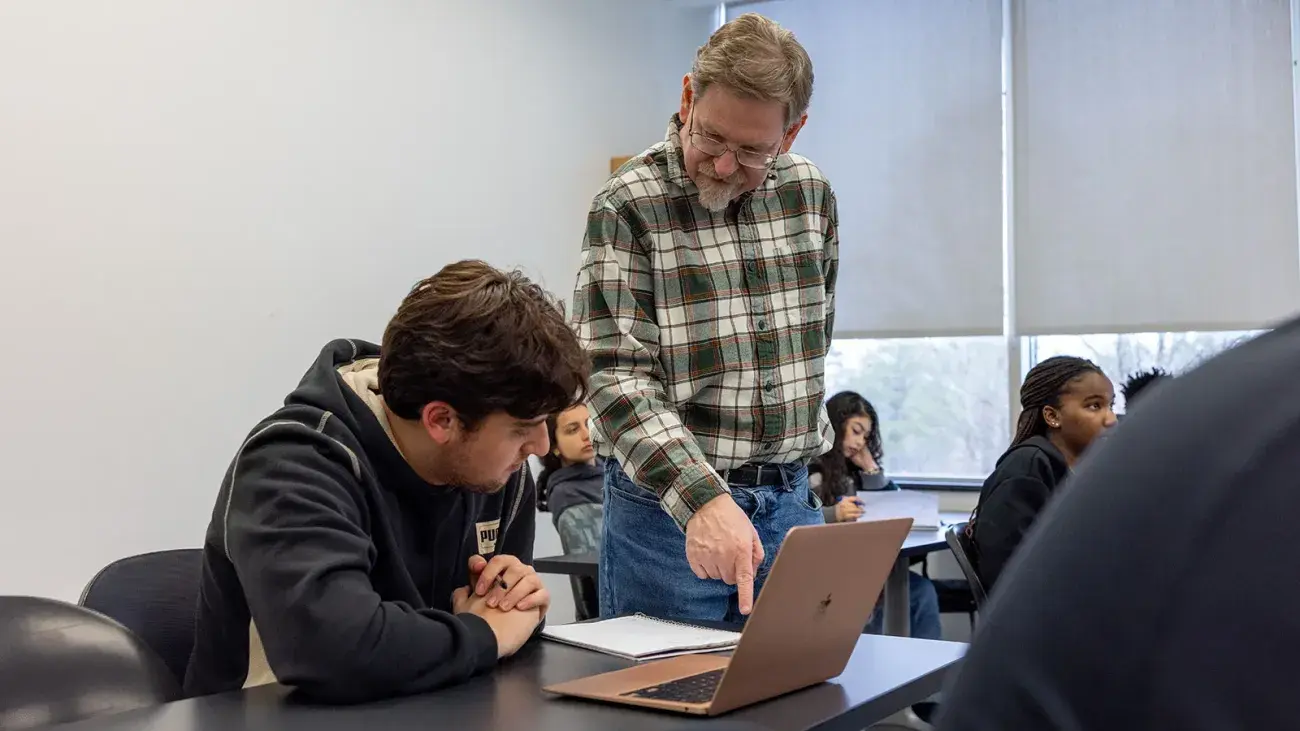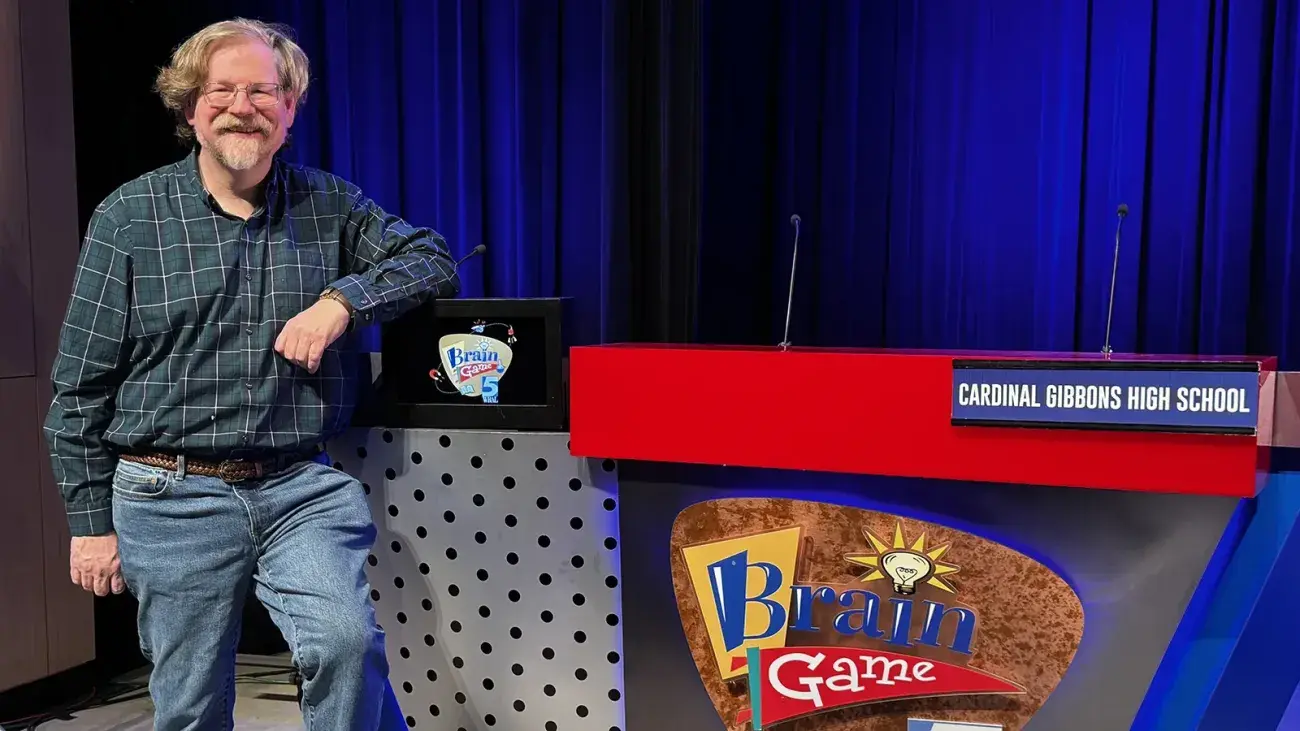Faculty Spotlight
Asking Questions and Tearing Down Walls
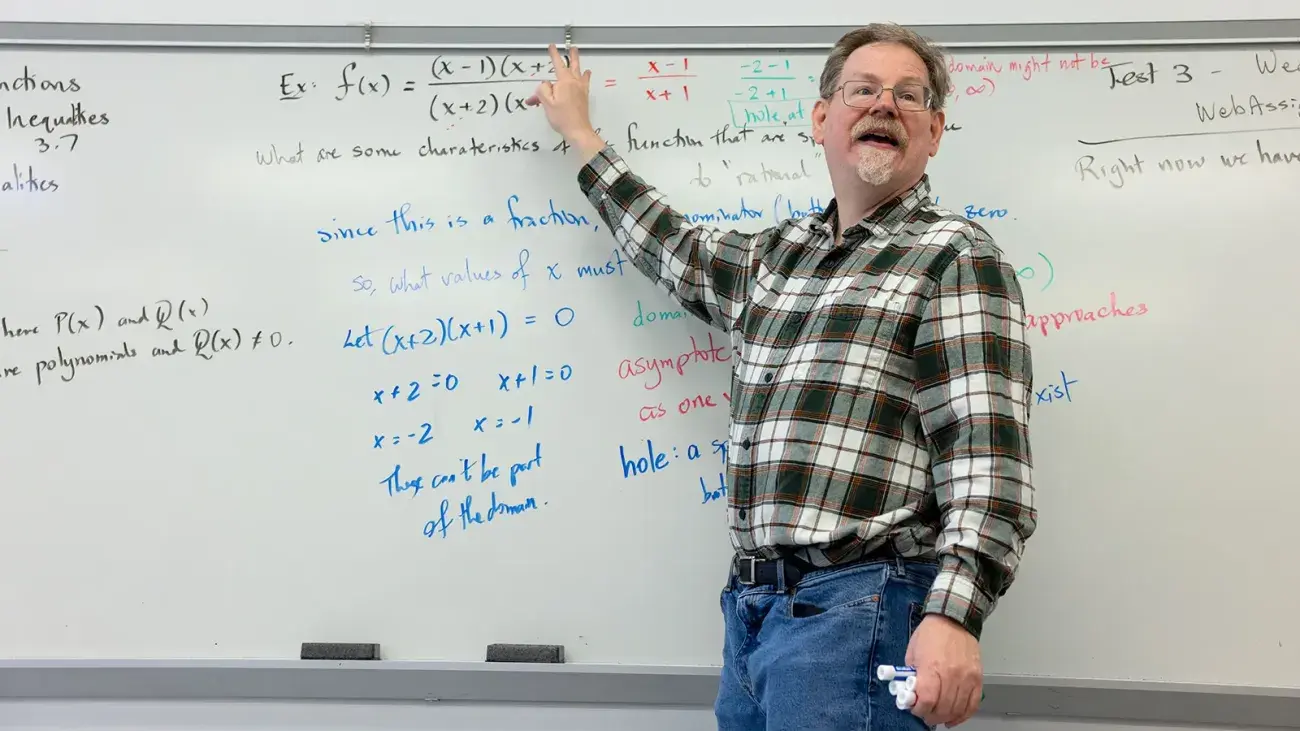
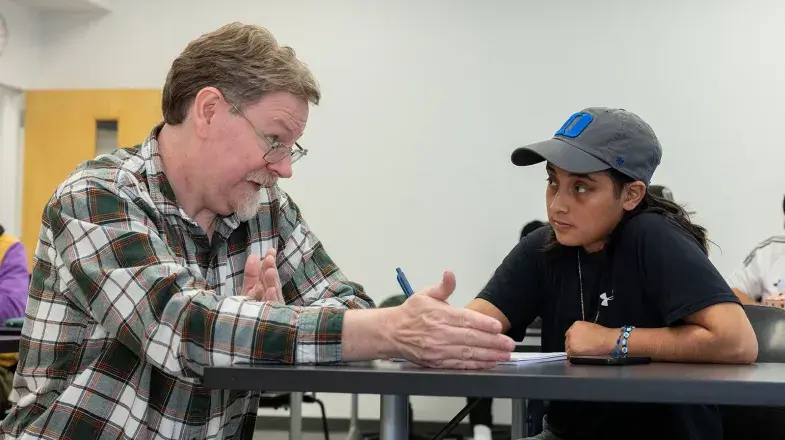
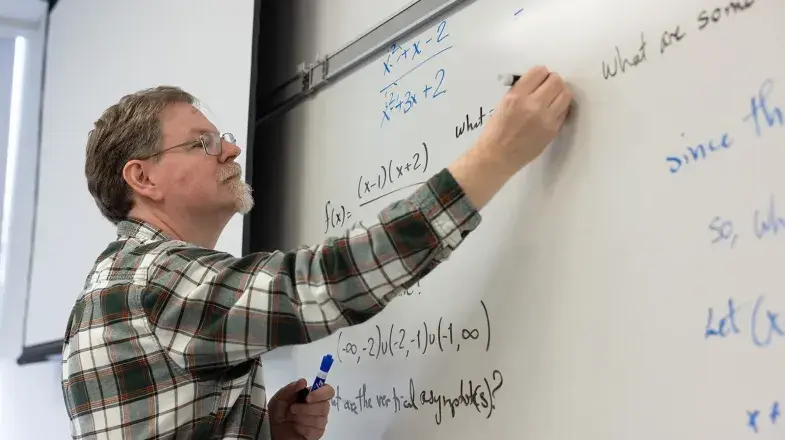
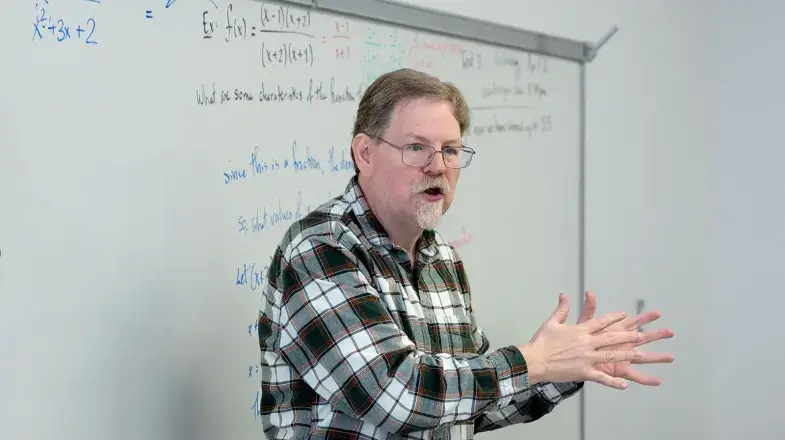
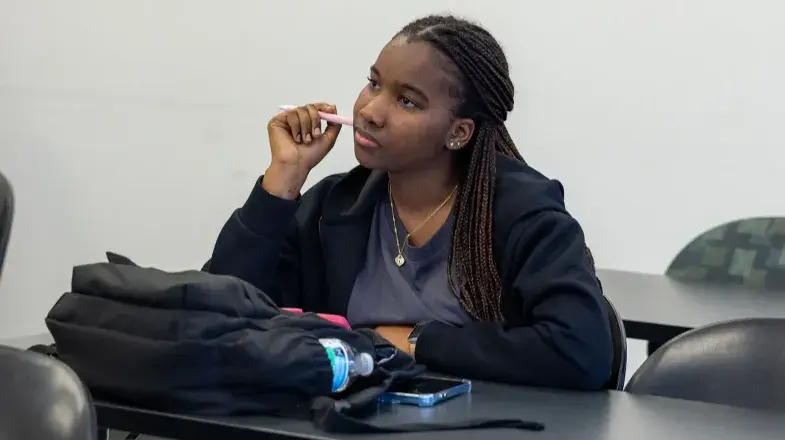
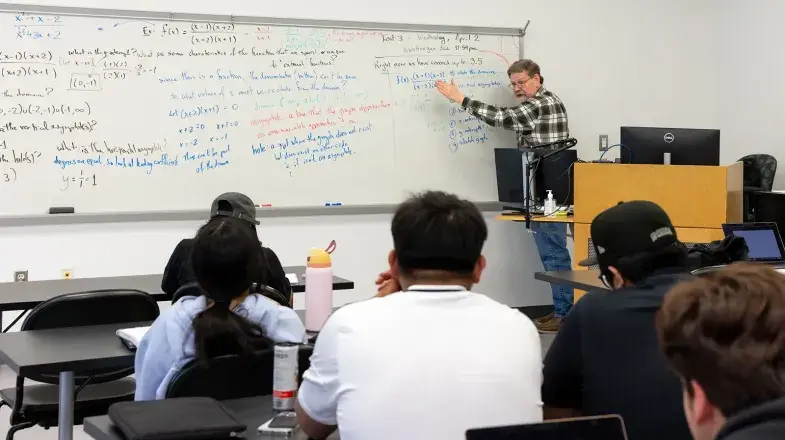
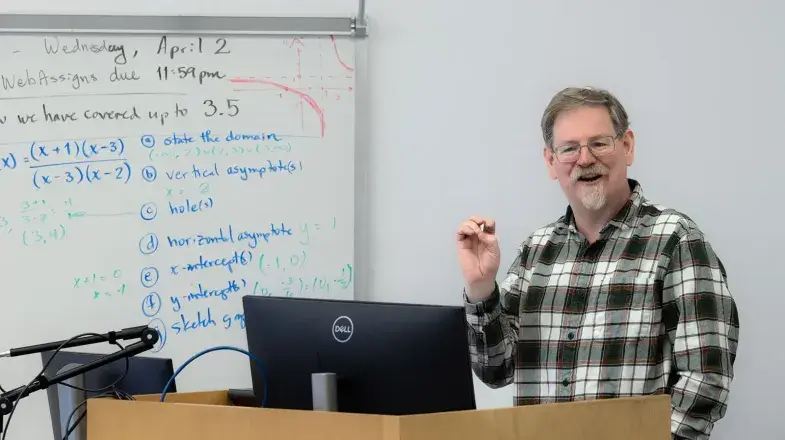
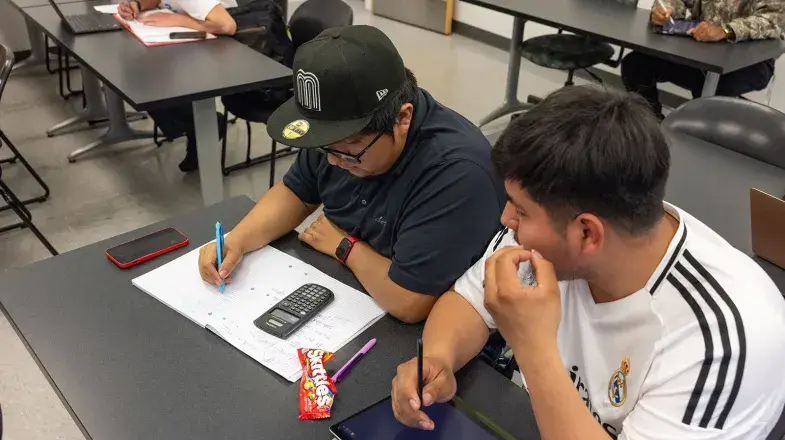
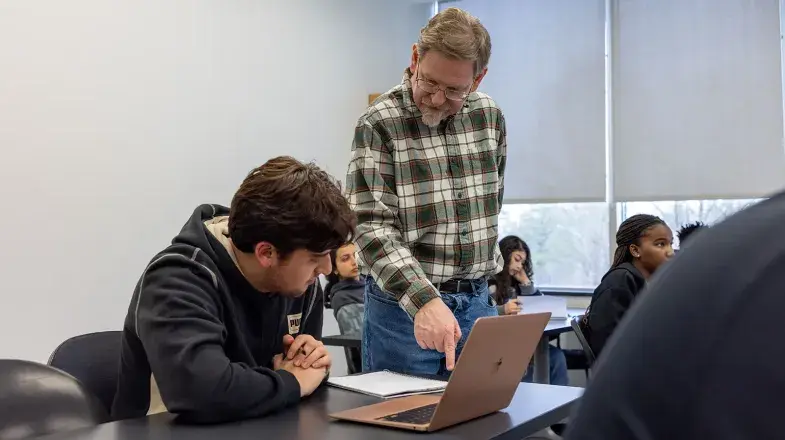
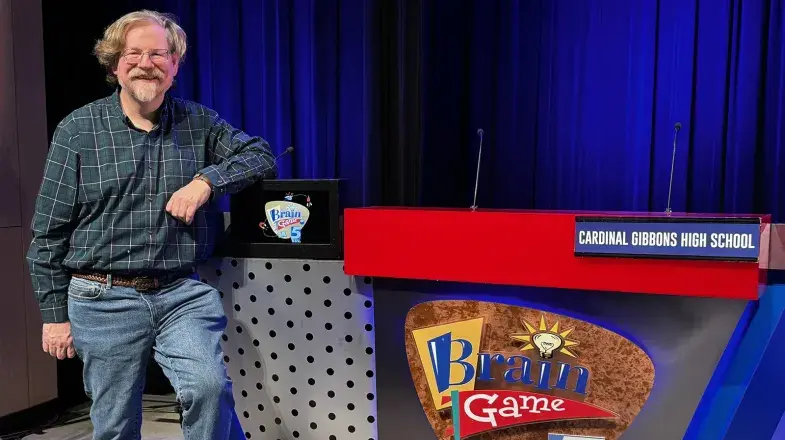
Seth McElvaney loves to write test questions.
"I know the feeling of accomplishment I get when I can answer a tough question," the senior professor of Mathematics said. "I enjoy being able to pass that feeling along."
McElvaney is so enamored of the process that he does it as a side gig in addition to the quizzes and tests he produces for students in his Wake Tech classes. He has served for 15 years as a writer and judge on WRAL's "Brain Game," a weekly TV quiz show for area high school students that is taped on the Scott Northern Wake Campus.
He coached a Raleigh high school quiz team in the early 2000s that competed regularly on Brain Game, and when he started at Wake Tech, the show's producers asked if he could help create math questions.
His questions extended to other subject areas later in his tenure with the show, such as American history and geography. On one show in early 2025, a question of his involved a town in Wales with a 47-letter name. (During a break in the taping, he gave the show's host a high five for correctly pronouncing it.)
"[The students] have only 15 to 20 seconds to answer, so the question has got to be something they can get right away or quickly get there," he said, adding that he aims for seventh- to 10th-grade knowledge levels.
McElvaney doesn't impose such limits on questions for his Wake Tech students.
"If I teach it in class, I can include it on the test," he said.
He uses analogies, like cake or money, to explain a mathematical concept in class as he fills a whiteboard with formulas to demonstrate it. He then erases everything and fills the board it again with more formulas for another concept. Through it all, he repeatedly brushes back a shock of hair that continues to fall across his face.
"You don't have any questions for me?" he asks students in a silent class. "I'm going to turn it around and ask you all questions."
McElvaney has been asking – and writing – questions for decades. He was raised by an aunt who taught middle school math in Arkansas, and although several relatives warned him against becoming a teacher, he switched his major from engineering to math in college.
"I wasn't good at building things, but I was good with numbers," he said. "[Teaching] was sort of what I was destined to do."
McElvaney has taught math at the high school, community college and university level but says he prefers Wake Tech because of its students.
"Most of our students want to be here and are open to instruction," he said. "They're rough rocks that just need some polishing."
He says he enjoys the "aha moments," when the lightbulb suddenly comes on as students grasp a concept.
"A lot of students have had bad math experiences and get frustrated and put up walls," he said. "I try to get them to tear down the walls and open themselves up to new ideas."
Ilya Ashirov failed an earlier math class at Wake Tech but says he thrived in McElvaney's class.
"His teaching style works better for me," Ashirov said. "He goes off on tangents but then gets to the point. He wants to make sure students understand the material."
Joanna Rodriguez-Perez says McElvaney incorporates a lot of jokes in his lessons to help make learning easier and fun.
"He explains everything step by step," she said. "He has an understanding of where people are at and helps everybody out."
One question McElvaney came up with did cause him major disappointment. He was a contestant on "Jeopardy" in the late 1990s and was in the lead going into the final category – Advertising. The answer: This product's "whole thing" commercial is in the Clio Award Hall of Fame.
"I knew this commercial from my childhood. I initially thought it was Alka-Seltzer, but then I thought that Alka-Seltzer was 'plop, plop, fizz, fizz,'" he recalled.
"What is Pepto-Bismol?" he wrote, which cost him the game and a chance to compete as a returning champion.
"It was Alka-Seltzer," he said. "I could quote the ad. ... The takeaway message is don't second-guess yourself."
